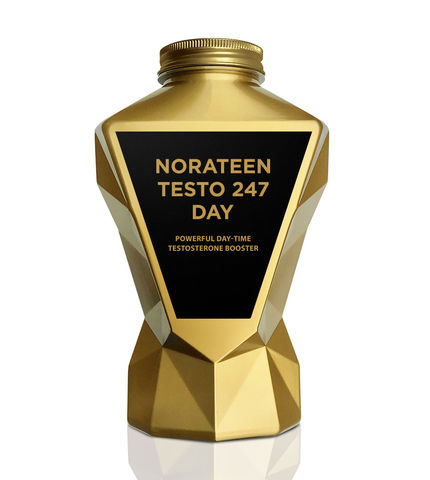The Knowledge > Better Health >
Saturday, 26th October 2024
Healing the Liver and Enhancing Emotional Well-being
By LA Muscle on 26.10.2024 10:13 am

The liver, one of the body’s most resilient organs, is responsible for filtering toxins, breaking down waste, and aiding digestion. However, beyond its physical functions, traditional and holistic medicine views the liver as closely tied to emotions, especially anger, frustration, and stress. Understanding this connection can unlock avenues to heal emotionally and physically, enhancing overall well-being.
The Liver-Emotion Connection: How Emotions Affect the Liver
According to Traditional Chinese Medicine (TCM), the liver is the seat of anger and other intense emotions. When we suppress feelings like frustration, stress, or resentment, this energy is believed to become "stuck" in the liver, causing imbalance. This stagnation can lead to physical symptoms such as digestive issues, fatigue, skin problems, and even hormonal imbalances.
Likewise, a sluggish or overburdened liver can make us more prone to irritability, low mood, and emotional instability. This two-way street between emotions and the liver's health suggests that by nurturing and cleansing the liver, we can also improve emotional resilience and mental clarity.
Detoxifying the Liver for Emotional Balance
Eat Liver-Friendly Foods: Choosing the right foods can help cleanse the liver and make it more efficient at filtering toxins. Here are some liver-boosting foods:
- Leafy Greens: Spinach, kale, and Swiss chard are rich in chlorophyll, which can absorb toxins from the bloodstream and support liver function.
- Beets and Carrots: High in plant-flavonoids and beta-carotene, these root vegetables help stimulate liver enzymes, promoting detoxification.
- Garlic: Contains selenium and allicin, both of which aid in liver detox and protect liver cells.
- Citrus Fruits: Lemons and limes support the liver by providing vitamin C and aiding digestion. Drinking warm lemon water in the morning is a popular way to stimulate liver function.
- Turmeric: Known for its powerful anti-inflammatory properties, turmeric boosts liver enzyme production and aids in detoxification.
- Green Tea: Packed with antioxidants called catechins, green tea can enhance liver function.
Stay Hydrated: Drinking enough water is essential for flushing toxins from the liver. Warm water with lemon first thing in the morning can stimulate liver function and start the day with a gentle cleanse.
Limit Toxins: Reducing exposure to environmental toxins can lessen the liver’s workload. Limiting alcohol, processed foods, and artificial sweeteners can make a significant difference. Choosing natural or organic products whenever possible also minimizes the liver's exposure to harmful chemicals.
Meditation and Emotional Detox for Liver Health
Meditation and mindfulness practices can significantly impact liver health by lowering stress and promoting emotional balance. Here are a few practices:
Breathwork: Techniques like deep abdominal breathing, box breathing, or alternate nostril breathing can help reduce stress, thereby easing emotional strain on the liver. Regular breathwork also aids oxygen flow to the liver, enhancing its detoxification process.
Visualization Meditation: Visualise a green light (associated with the liver in TCM) entering your liver area, purging it of toxic energy, and bringing in calmness. This practice, done for a few minutes daily, can promote a sense of relaxation and well-being.
Gratitude Practice: By focusing on things you're grateful for, you can shift your perspective and lighten the emotional load on the liver. A consistent gratitude practice can help reframe negative emotions, reducing the “heaviness” that may impact the liver.
Physical Movement to Release Emotional Stagnation
Moving the body encourages energy flow, which can prevent emotional stagnation from affecting the liver. Practices like yoga, especially poses that stimulate the liver meridian (such as twists), are great for liver health.
- Liver-Targeted Yoga: Yoga poses like Seated Forward Fold, Cobra Pose, and Gentle Twists are particularly beneficial for the liver.
- Qi Gong: This gentle Chinese practice incorporates movements that target the liver, releasing emotional energy and improving circulation.
Supplements and Herbs for Liver Health
Before introducing supplements, it’s best to consult a healthcare provider. However, several herbs are traditionally used for liver support:
- Milk Thistle: Contains silymarin, known for its liver-protecting properties and antioxidant effects.
- Dandelion Root: Known to aid digestion and stimulate bile production, supporting liver detox.
- Schisandra: A powerful adaptogen that supports liver detox and can balance stress hormones.
Achieving a Happier, Healthier Liver
Through a holistic approach—incorporating liver-friendly foods, regular meditation, emotional detox practices, and gentle movement—you can help cleanse the liver of toxicity while promoting a state of emotional and physical well-being. Healing the liver is more than just a physical process; it's a journey of emotional and mental alignment that leads to greater health and happiness.
By caring for your liver, you nurture both body and mind, creating a foundation for a happier, healthier you.




























